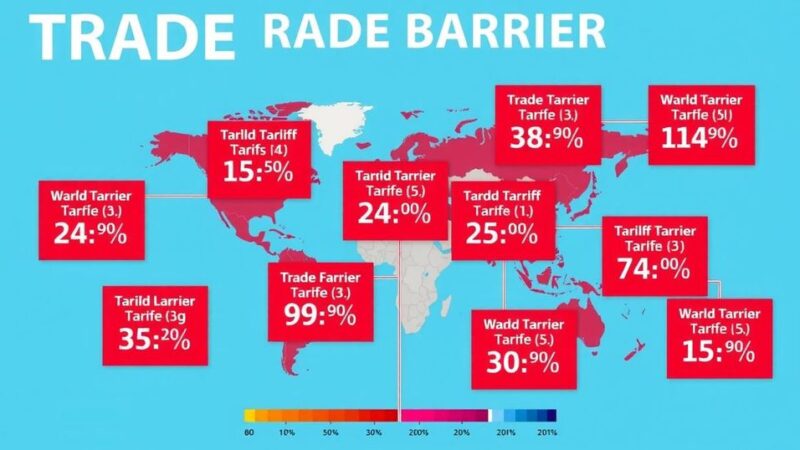Nigerians spent N21.51 trillion on imports over four years, revealing a growing dependency on imported goods despite local production efforts. Notable expenditures include N6.77 trillion on prepared food, N3.64 trillion on live animals, and N7.72 trillion on plastic products. The textile and wood import sectors also demonstrated significant import growth, indicating the challenges Nigeria faces with self-sufficiency.
According to a recent report from the National Bureau of Statistics, Nigerians expended approximately N21.51 trillion on imports, including food and other goods, over the last four years. The findings reveal a persistent dependency on imports, indicating that local production efforts have not sufficiently mitigated this trend.
Of the total expenditure, N6.77 trillion was allocated to the importation of prepared foodstuffs, beverages, spirits, tobacco, and vinegar. Spending increased each year, from N594.08 billion in 2020 to N2.79 trillion in 2024.
Additionally, expenditures on live animals and animal products amounted to N3.64 trillion over four years. This category saw growth from N454.52 billion in 2020 to N1.49 trillion by 2024. The importation of smaller categories, including footwear and headgear, also increased significantly, totaling N167 billion during this period.
Plastic and rubber products emerged as the highest import category, with a total cost of N7.72 trillion. Import spending in this sector rose sharply from N609 billion in 2020 to N3.46 trillion in 2024. Textiles, which were historically a strong sector for Nigeria, accounted for N1.93 trillion in imports, with a gradual annual increase.
In terms of wood-related imports, the country spent N909 billion over the four years, with a notable rise in expenditure each year. Furthermore, N373 billion was allocated for raw hides, skins, and leather products, which also showed an upward trend during this period. These statistics underscore Nigeria’s ongoing dependency on imports despite the introduction of policies intended to enhance local production efforts.
The data collected by the National Bureau of Statistics underscores Nigeria’s significant reliance on imported goods over the past four years. Despite efforts to boost local production, expenditures continue to rise across various categories, particularly in food, animal products, and textiles. This trend highlights the challenges Nigeria faces in achieving self-sufficiency and the urgent need for strategic interventions to reduce import dependency.
Original Source: punchng.com






